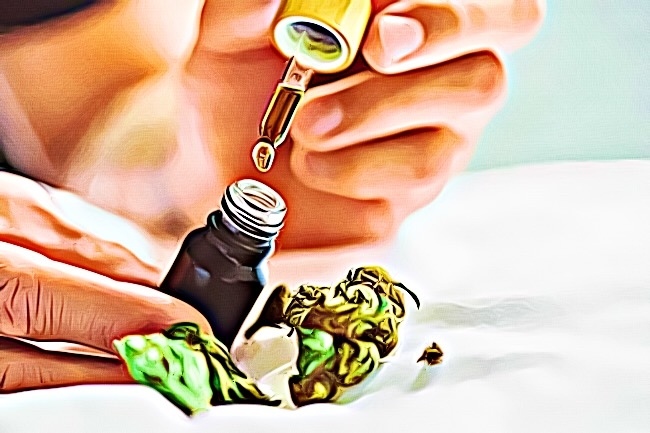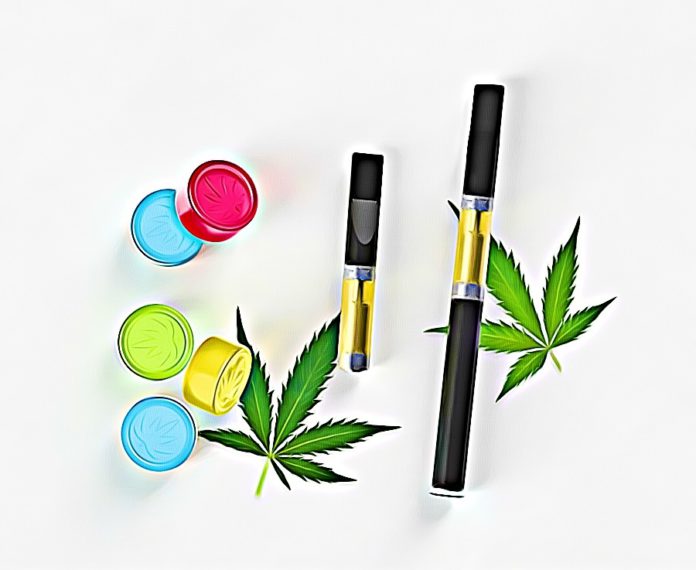Recently, some cannabinoids with psychoactive properties have grown in popularity, the most well-known being THC-O, which is more potent than the primary psychoactive chemical in marijuana. Because little research has been performed on its effects, the risk of overdose, and other adverse side effects, many have concerns about this analog.
What Is THC-O
THC-O acetate, also called THC-O or Tetrahydrocannabinol, is a natural cannabinoid. CBD, CBG, and CBN are all cannabinoids.
Unlike popular belief, personnel from the rehab center would state that THC-O is not the result of extraction from the hemp plant. Instead, it is produced through a chemical reaction using acetic anhydride, which can be made using common household items. Acetic anhydride is mixed with a solution of Delta-8 THC (tetrahydrocannabinol) to create THC-O to synthesize THC-O acetate.
Few scientific studies have been conducted on a marijuana-related compound called THC-O. It is three times more potent than THC and has been known to cause unusual experiences. These experiences are said to take on a spiritual tone.
Public interest in a non-psychoactive compound found in Cannabis has been growing across the US. This compound, called cannabidiol (CBD), treats various conditions, including anxiety, pain, and even seizures.
CBD comes from the cannabis plant, while it does not produce the psychoactive effects of THC. It can be used without the risk of intoxication. CBD is available in various forms, including oils, tinctures, capsules, and edibles. It is an ingredient in lotions and creams.
THC Vs. THC-O
The THC vs. THC-O debate has been around for some time. It is an argument that has been had by many people in the medical and scientific community. Many believe THC is the better option for treating certain medical conditions. Several people believe that THC-O is the better option.
The debate between THC and THC-O is likely to continue for some time. Many people have strong beliefs on both sides of the discussion.
Is THC-O Safe?
When it comes to addiction, there is no one-size-fits-all solution. However, rehab centers can be a lifesaver for many people struggling with addiction. If you or someone you love is considering entering a rehab center for treatment, you may wonder what the staff will have to say about THC-O.
Most cannabinoids, like THC-O, are not regulated. THC-O is manufactured without standards and uses synthetic chemicals in its production process, even though most products claim to be all-natural. Knowing what substances were used and how much is next to impossible. In addition, your body may react differently to the substances involved due to the lack of regulation.

THC-O is a so-called prodrug, or precursor, of THC. It means its psychoactive effects are not felt until it is transformed into THC after intake. For example, it could take up to 30 minutes for it to activate once inside the body.
As a result, someone who has not already felt the effects of cannabis may be unaware that a dose is necessary. Taking a second dose if the first one does not take effect could cause someone to ingest too much, which could be harmful.
THC-O Effects
As a powerful psychoactive substance, it produces feelings of euphoria, relaxation, and sedation. It can also cause hallucinations, paranoia, and anxiety. THC-O is a Schedule I drug in the United States. It means that it has a high potential for abuse and is not accepted for medical use.
Unlike other cannabinoids, it doesn’t take effect right away. First, users should wait about 20 minutes after inhaling THC-O before they expect to feel a buzz.
The primary psychoactive ingredient in Cannabis, needs to be metabolized in the liver before it can kick in. When this happens, it is reported time for users to buckle up and prepare for a cannabis experience unlike any other. Part of the experience includes hallucinations and an intense body high similar to a potent Sativa.
The Risks Are Unknown
The reasons why THC-O has not yet been approved for public consumption are numerous. First, it is still a new substance just now being researched.
Second, it is more likely to be abused than weed because of its increased bioavailability, which means that the effects of it would be more robust, faster-acting, and easier to come by if legalized. Finally, any it products that are “100 percent natural” are most likely not to be entirely safe for consumers because the substances used to produce them might not have been approved by the government.
We still do not know much about THC-O, the active ingredient in marijuana. While it is true that THC-O has been used for centuries for its medicinal properties, we do not know a lot about its risks.
Personnel from the rehab center warn that it is a psychoactive compound that can alter your state of mind. It is also known to interact with other medications, so if you take any prescription drugs, you must talk to your doctor before using THC-O.
We also do not know much about the long-term effects of its use. Generally, it is considered safe; but there is a potential for dependency and abuse. If you are considering using it, it is necessary to be aware of the risks.
THC-O Vs. Delta-8
There are many similarities between THC-O and Delta-8. Both are cannabinoids that can be found in cannabis plants. Both of these cannabinoids can provide similar effects when consumed. However, there are also some critical differences between the two.
It is the more potent of the two cannabinoids. It is also a psychoactive cannabinoid. It means that it can produce more powerful effects when consumed. Delta-8, on the other hand, is less potent and less psychoactive. It means that it has milder effects.
Both THC-O and Delta-8 can be used to treat a variety of medical conditions. Both cannabinoids have anti-inflammatory and pain-relieving properties. They can also be used to treat nausea and vomiting.
The main difference between THC-O and Delta-8 is their potency. It is more potent than Delta-8. It means that it can produce more substantial effects. Delta-8 is less potent, which means that it has milder effects.
Conclusion
It is evident that THC-O has a range of effects on the human body, most notably its ability to alter one’s perception of time and space. Additionally, it can also lead to feelings of paranoia and anxiety. However, it is important to note that the effects of THC-O vary from person to person, and that not everyone will experience the same effects.
Sources:
















